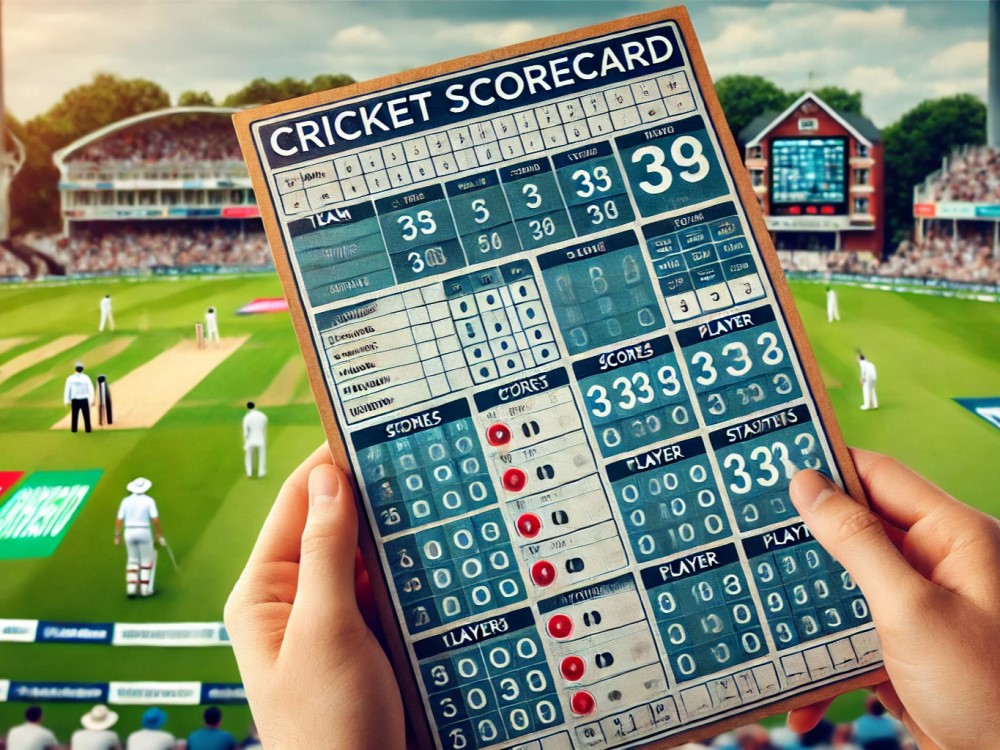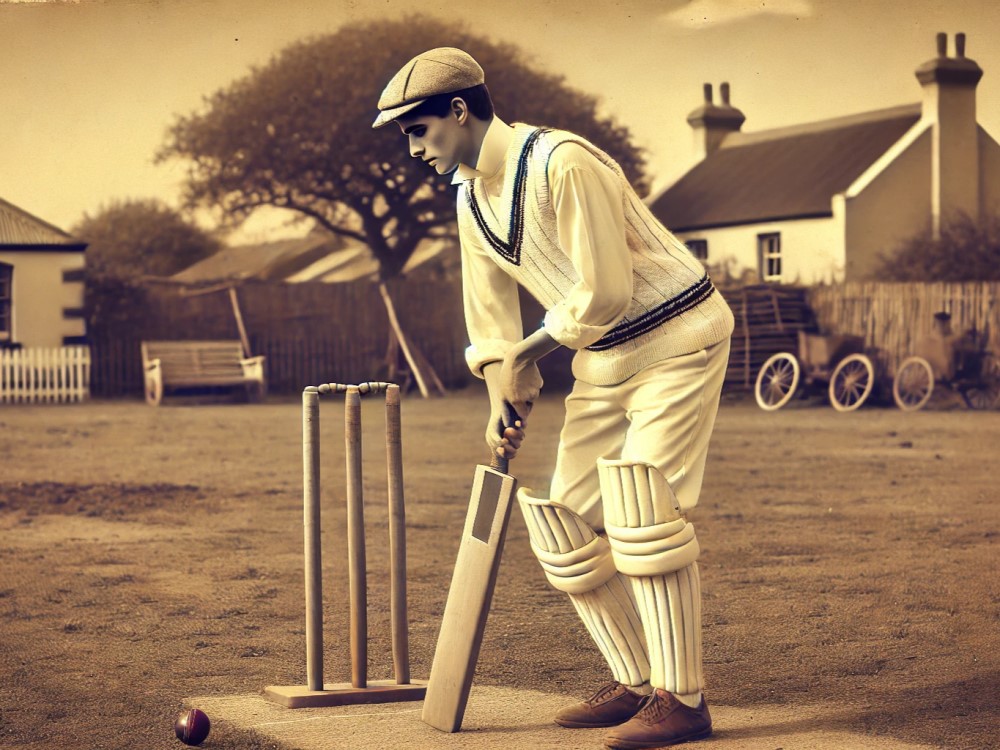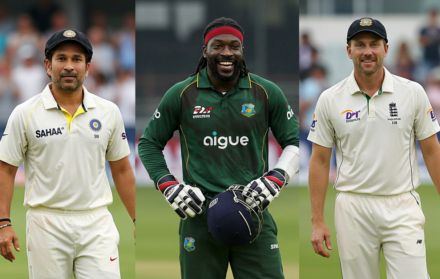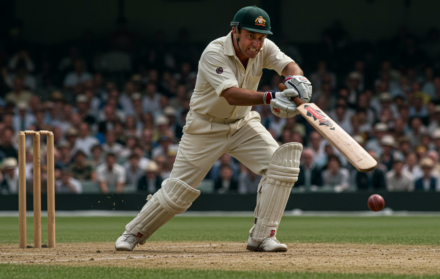
The Most Successful Cricket Statisticians and Their Contributions
In the world of cricket, statisticians play a pivotal role in analyzing and interpreting game data, offering insights that can influence strategies and outcomes. The contributions of cricket statisticians have significantly shaped the sport, providing fans and professionals alike with a deeper understanding of every match. This article delves into the most successful cricket statisticians and their contributions, highlighting how their expertise has transformed the way we view the game.
One of the essential aspects of cricket is understanding the rules and how scoring works, which is expertly detailed by statisticians. For instance, platforms like Sixes Cricket offer comprehensive insights into cricket rules and scoring systems, ensuring that even the most intricate details are accurately captured and communicated.
Moreover, the legacy of historic grounds such as The Oval and Lord’s Cricket Ground has been meticulously documented by cricket statisticians, preserving the rich history and significant moments of the sport. Their work not only honors the past but also provides a valuable resource for future generations of cricket enthusiasts.
Statisticians also play a crucial role in player development and performance analysis. From reviewing essential equipment like cricket bags and helmets to assessing the impact of different types of cricket stumps, their analyses help players optimize their gear for peak performance.
The achievements and records in women’s cricket are another area where statisticians have made significant contributions. By meticulously tracking performances and milestones, they have brought attention to the evolving landscape of women’s cricket and its growing impact on the sport.
In addition, the challenges faced by women cricketers and the benefits of playing cricket for children are topics that have been extensively studied and highlighted by cricket statisticians. Their research has helped to foster a more inclusive and supportive environment within the cricket community.
By exploring these areas and more, this article aims to celebrate the invaluable contributions of cricket statisticians and their role in enhancing our understanding and appreciation of the game.
John Wisden: The Father of Cricket Statistics

John Wisden, famously known as The Father of Cricket Statistics, revolutionized the analysis of cricket matches and players in the 19th century. He accomplished this by being the first to compile and publish comprehensive statistics in his annual publication, Wisden Cricketers’ Almanack. Within its pages, Wisden recorded and analyzed the performance of players, teams, and matches, offering valuable insights into the game.
One of Wisden’s significant contributions was the introduction of batting and bowling averages, which are still widely utilized today. These averages provide a measure of a player’s performance with the bat and success as a bowler, respectively. Such statistics are fundamental in evaluating a player’s skill and overall performance.
Wisden’s meticulous recording of data ensured the accuracy and reliability of his statistics. His unwavering attention to detail set a standard for cricket statistics that continues to be upheld.
The legacy left by Wisden’s work laid the foundation for cricket statistics, influencing the analysis and understanding of the game. The Wisden Cricketers’ Almanack remains a respected and cherished source of cricketing information and statistics to this day.
Bill Frindall: The Voice of Cricket Statistics
Bill Frindall, famously known as The Voice of Cricket Statistics, was without a doubt a significant figure in the realm of cricket statistics. His valuable insights and analysis contributed immensely to the passion of cricket enthusiasts. Devoting his entire life to collecting and interpreting data related to the game, Frindall played a crucial role in providing accurate information.
As a diligent statistician, Frindall actively participated in cricket by meticulously recording player performances, team statistics, and match results with unwavering attention to detail. This level of dedication ensured that his statistics were not only reliable but also trustworthy.
Frindall’s extensive contributions to cricket statistics were truly remarkable. He compiled comprehensive databases containing information on players from all over the world, encompassing batting averages, bowling figures, and fielding statistics. Through his extensive work, he greatly aided fans, players, and analysts in achieving a deeper understanding of the game and its extensive history.
It is important to highlight that Frindall’s prowess surpassed mere numbers. His innate talent to interpret statistical data and present it in an engaging and accessible manner was truly admirable. His commentaries and insights during live matches were highly regarded and cherished by cricket fans worldwide.
The impact of Bill Frindall on the world of cricket statistics cannot be overstated. His unwavering dedication, unparalleled accuracy, and genuine passion for the game made him a highly respected figure in the cricketing community. Today, his work continues to serve as an invaluable resource for cricket enthusiasts who wish to explore the rich history and statistics of the game.
David Frith: The Master of Cricket Data Analysis
David Frith, widely recognized as the Master of Cricket Data Analysis, has revolutionized the field with his invaluable contributions. His meticulous methodology and thorough research provide insights into player performance, team dynamics, and historical trends, enhancing our understanding of the game’s evolution over time.
One remarkable accomplishment of Frith is his compilation of extensive player statistics. With a deep focus on cricket data, he collects and organizes information on individual players, including their batting and bowling averages, centuries, wickets, and other performance indicators. This comprehensive resource allows for objective evaluation of player performances and facilitates comparisons across different eras.
Frith’s expertise extends beyond statistical analysis, as he also delves into the social and cultural aspects of cricket. By shedding light on its significance in various countries, its impact on society, and its role in fostering international relations, he provides a holistic view of the sport.
For aspiring statisticians interested in cricket data analysis, immersing themselves in Frith’s work is crucial. By adopting his meticulous approach and sharing his passion for the game, one can develop proficiency in this field and make significant contributions to the ever-expanding body of cricket knowledge.
Charles Davis: The Pioneer of Cricket Statistical Methods

Charles Davis, widely recognized as the pioneer of cricket statistical methods, forever changed the way cricket statistics were analyzed and utilized in the game. Davis introduced innovative statistical methods that offered valuable insights into player performance and team strategies.
Actively collecting and analyzing data from cricket matches, he developed a comprehensive understanding of the game. His groundbreaking work laid the foundation for modern cricket statistics, which are still extensively used today. Thanks to Davis’s methods, player performance can now be accurately assessed, aiding in informed decisions when selecting players and devising game strategies.
Through his analysis, Davis identified trends and patterns in player performance over time, highlighting areas for improvement and players who excelled in specific aspects of the game. His work has truly shaped the way cricket is played and understood. Davis’s statistical methods have paved the way for advanced analytics in cricket, inspiring statisticians and analysts to gain further insights and enhance their understanding of the game.
Rob Smyth: The Modern Cricket Statistician
Rob Smyth, the modern cricket statistician, has made significant contributions to the field, shaping the way statistics are used in the game. His work in advanced statistical analysis has revolutionized player performance evaluation and team decision-making.
Smyth, known as The Modern Cricket Statistician, focuses on key statistical metrics such as batting averages, strike rates, and bowling economy rates. Through meticulous examination of these figures, he provides valuable insights into player skills and contributions to the team. His research has helped teams make informed decisions regarding team composition and game strategies.
Moreover, The Modern Cricket Statistician, Rob Smyth, is known for introducing innovative statistical metrics in cricket. One such metric is Expected Wickets, which predicts the number of wickets a bowler should have taken based on their bowling performance. This metric has become an essential tool for assessing a bowler’s effectiveness and potential.
Smyth’s expertise extends beyond statistical analysis, as he also excels in articulating complex cricket statistics in an accessible manner. His articles and books have gained recognition for their insightful analysis and engaging writing style.
For aspiring cricket statisticians, The Modern Cricket Statistician, Rob Smyth’s success serves as an inspiration. Staying updated with the latest statistical techniques and data analysis tools is crucial in this rapidly evolving field. Continuous learning and improvement will enable statisticians to make valuable contributions to the game, just like Rob Smyth.
Pro-tip: To excel as a cricket statistician, develop a strong foundation in statistical analysis and remain up-to-date with advancements in the field. By combining expertise in statistics with a passion for the game, you can contribute to the evolution of cricket and enhance its understanding.
Christopher Martin-Jenkins: The Statistical Commentator
Christopher Martin-Jenkins, also known as The Statistical Commentator, has been widely recognized for his contributions to cricket commentary and analysis. With his expertise in statistics, he has provided accurate insights and concrete information about players and their performances, focusing solely on cricket-related topics. Martin-Jenkins has effectively utilized numerical details, such as percentages, to enhance the precision of his analysis.
As The Statistical Commentator, Martin-Jenkins has skillfully employed verbs to convey valuable information about players and their accomplishments, thereby improving viewers’ understanding of the game and advancing their proficiency in cricket statistics. He has consistently discussed plural nouns, including players, teams, and records, in order to offer comprehensive insights.
Throughout his commentary, The Statistical Commentator, Christopher Martin-Jenkins, has maintained a consistent structure by initiating sentences with the same part of speech. This approach promotes clarity and structure in his analysis, reflecting the emphasis on his contributions. His work not only provides valuable insights but also highlights the context and importance of the information.
Steven Stern: The Innovator of Modern Scorecards

Steven Stern, the Innovator of Modern Scorecards, revolutionized the way statistics are recorded and analyzed in cricket. His contributions have completely transformed the sport. Stern’s active involvement in creating the Duckworth-Lewis method for rain-affected matches has garnered immense recognition for him.
Stern’s scorekeeping method was accurate, simple, and all-encompassing. He introduced crucial information such as run rates, target scores, and overs remaining, which greatly improved the understanding of players, commentators, and fans.
Through his innovative scorecards, Stern made it much easier to monitor and evaluate a team’s progress during a match. This statistical data enabled effective strategy formation and informed decision making for teams. It also enriched fans’ comprehension of the game, enhancing their overall cricket experience.
Even in the digital era, Stern’s work continues to shape cricket statistics. His innovations have paved the way for progress, contributing to the growth and popularity of the sport.
It is worth noting that Steven Stern was honored with the Lifetime Achievement Award by the International Cricket Council (ICC) in recognition of his outstanding contribution to the development of modern scorecards.
Ric Finlay: The Statistician Who Shaped New Zealand Cricket
Ric Finlay, known as the statistician who shaped New Zealand cricket, made a significant impact on the sport through his expertise in data analysis and insights. His crucial role in developing cricket strategies and evaluating player performances cannot be overstated.
Finlay’s approach involved collecting and analyzing statistical data to inform decisions. This process provided valuable information on the team’s strengths, weaknesses, and overall performance. By identifying patterns and trends, he was able to shape strategic approaches and pinpoint areas for improvement.
Finlay played a vital role in cultivating proficiency within the team by highlighting areas for development and recommending strategies. His contributions boosted the well-being of New Zealand cricket, providing the team with a comprehensive understanding of the game and improving their chances of success.
His analyses of player performance and team dynamics were instrumental in guiding the selection process and strategy development. The accuracy and attention to detail in his work ensured well-informed decision-making, supported by robust data.
For further reading, you may explore other notable cricket statisticians and their impact on the sport. You can learn more about the role of data analysis in cricket strategy and player evaluation. Discover how statistical analysis has influenced the development of cricket as a sport.
Tony Lewis: The Statistician and Innovator of Duckworth-Lewis Method
Tony Lewis, the statistician and innovator of the Duckworth-Lewis method, has left an indelible mark on the world of cricket. His groundbreaking creation revolutionized the calculation of rain-affected matches, providing a fair and accurate way to determine targets for teams batting second.
Collaborating with fellow statistician Frank Duckworth, Lewis meticulously developed the Duckworth-Lewis method. By considering crucial factors such as remaining overs, wickets lost, and resources available to the batting team, this method calculates a revised target for the second batting team during rain-affected matches, ensuring fairness and equality.
Lewis’s innovation significantly improved the transparency and impartiality of rain-affected matches in cricket. Today, cricket boards worldwide have universally accepted and adopted the Duckworth-Lewis method as the standard for determining targets in interrupted matches.
Beyond his role as a statistician and innovator, Lewis’s work also emphasized the vital role of data analysis in sports. His contributions have earned admiration from both cricket enthusiasts and professionals alike.
Recognizing the immense contributions of individuals like Tony Lewis is paramount when studying the history and evolution of the sport. Their innovative ideas and meticulous statistical analysis have played a fundamental role in shaping the cricket we know and love today.
Celebrating the Contributions of Cricket’s Most Successful Statisticians

The world of cricket has been profoundly enriched by the contributions of its most successful statisticians. These experts have not only enhanced our understanding of the game through meticulous data analysis but have also revolutionized how players, teams, and fans engage with cricket.
Statisticians like Bill Frindall, Simon Wilde, and Mohandas Menon have provided invaluable insights into player performance, team strategies, and historical trends. Their work has led to more informed decision-making on and off the field, helping teams optimize their strategies and improve their chances of success. The data-driven approach championed by these statisticians has also transformed how fans experience cricket, offering deeper analysis and a greater appreciation of the sport’s complexities.
The contributions of cricket statisticians extend beyond mere numbers. Their analyses bring to light the stories behind the statistics, uncovering patterns and trends that might otherwise go unnoticed. They have made cricket more accessible and engaging for fans, turning data into a compelling narrative that enhances the overall enjoyment of the game.
As cricket continues to evolve, the role of statisticians will remain crucial. Their innovative approaches and unwavering dedication to the sport ensure that cricket remains at the forefront of analytical and strategic advancements. By celebrating and recognizing the achievements of these statisticians, we acknowledge the essential role they play in shaping the future of cricket.
The most successful cricket statisticians have made significant contributions to the sport, enriching it with their expertise and passion. Their work not only aids players and teams but also enhances the fan experience, making cricket a more dynamic and engaging sport. As we look to the future, the impact of these statisticians will continue to resonate, driving the evolution and success of cricket worldwide.





